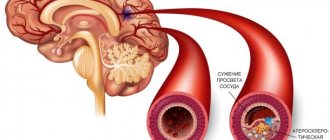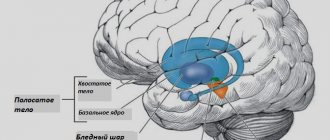Do you have mood swings? The good news is that you are not alone - it is completely natural for it to change depending on what is happening in our lives. When we are happy, we ignore negative events, and when we are sad, we may not notice positive ones. There is nothing wrong with mood swings, there is nothing wrong with moving from one state of consciousness to another throughout the day. The problem arises when there is an extreme response to events around or within us. Mood swings can be so rapid that they affect quality of life. This is when people suffer from emotional distress.
It is not known exactly why mood swings occur. Some scientists believe that the cause is chemical reactions, or more precisely, a chemical imbalance in the brain. Mood swings are typically accompanied by symptoms such as anxiety, changes in behavior or personality, confusion, poor judgment, rapid speech, difficulty concentrating and understanding, forgetfulness, and even excessive alcohol consumption.
Listed below are some of the main causes of sudden mood swings.
Hormonal changes
You probably remember your mood swings as a teenager - aggression, and then depression, irritability or anger at your parents. Mood swings during puberty can be attributed to the rapid increase in sex hormone levels. PMS is also a known cause of mood swings in teenage girls and adult women, which can be attributed to fluctuations in estrogen and progesterone levels during periods.
Mood swings are very common during pregnancy, especially in the first and third trimester. Pregnancy is a condition that is associated with emotional and physical changes causing physical tension, fatigue, anxiety along with hormonal changes that affect neurotransmitters that regulate mood. All this can cause sudden mood swings. Don't worry, this is completely normal.
Menopause is another reason why women experience mood swings. The main factor is a decrease in estrogen levels. One theory is that low estrogen levels cause hot flashes and night sweats, which lead to sleep disturbances and hence changes in daytime mood. Another theory supports the idea that mood swings are a response to changing roles and relationships associated with age. Another theory holds that women may experience mood swings when low estrogen levels disrupt the balance of hormones that regulate mood and emotions (dopamine, serotonin).
Mood swings due to hormonal changes are easily treatable. Your doctor will prescribe medications based on your symptoms. Psychotherapy also helps to cope with the situation.
Prevention and treatment
Prevention of emotional disorders is a healthy lifestyle, activity, normal sleep and diet, appropriate physical activity, walking or working in the fresh air. A good remedy is your favorite hobby, various techniques of meditation and auto-training, breathing exercises, and yoga. For many people, this helps restore their psycho-emotional background and overcome stress and troubles. If possible, you should consume food containing many vitamins and microelements.
Proper education from an early age is of great importance. Parents should pay sufficient attention to the emotional state of the child, at any age, treat him as an individual, respect his preferences and listen to his opinion.
In upbringing, it is necessary to be consistent, not to allow disordered actions of parents and other relatives (father and mother forbid drinking soda, but grandmother allows it). If this is practiced, the child will very quickly learn to be resourceful and will use all means to satisfy his whims. This has a negative impact on personal and mental development.
The period of puberty of a child is a time of special attention, patience and strong-willed efforts on the part of parents. It is necessary to try to treat the teenager as an adult, respect his right to choose friends, music, clothes, entertainment and other activities. Prohibitions and restrictions are clearly stated with reasons why they are necessary. Every effort should be made to build a trusting relationship with your son or daughter. Then there is a chance to go through a difficult period together with a teenager, and not on opposite sides of the barricade.
Sedatives, nootropic drugs, antidepressants, tranquilizers are potent medications. Some of them are addictive. It is unacceptable to start treatment with them on your own, on the advice of friends or because they have already helped once.
Many people suffer from mood swings, because it is absolutely natural for it to change depending on what situations occur in their lives. When a person is happy, he tries not to notice the negative aspects, and when he is sad, he does not see the good. There is nothing wrong with moving from an elevated mood to a bad one or vice versa, because any emotions are temporary. Problems begin when changes become so frequent and rapid that they affect the quality of life. In medicine, this condition is called an affective disorder, a characteristic feature of which is such mood swings, when in just a few minutes a person manages to feel almost all emotions - from immense happiness to complete despair and hatred.
IT IS IMPORTANT TO KNOW! Fortune teller Baba Nina:
“There will always be plenty of money if you put it under your pillow...” Read more >>
Mood swings are a side effect of medications and substances.
Sudden mood swings or outbursts of anger are often a symptom of drug addiction. If you are using drugs to escape problems in your life, know that you are not only making existing problems worse, but you are also creating new problems for yourself. All psychotropic drugs change the way the brain functions.
These drugs cause a surge in the action of dopamine in the brain, causing a feeling of pleasure. Gradually, the brain adapts to dopamine surges and produces less of the hormone, thus reducing its impact. Therefore, you need a larger amount of the drug to get a high dose of dopamine. Long-term abuse also alters other brain chemicals. Glutamate, a neurotransmitter implicated in cognitive function, is altered by drug abuse, negatively affecting learning and memory, behavioral control, and decision-making potential.
Realizing that you have a drug addiction is the first step towards recovery. Don't downplay the problem. Seek support from your family and friends. Don't hesitate to seek professional help.
But it’s not just the abuse of illegal substances that can cause mood swings. Some medications can also cause sudden mood swings.
Antidepressants
, which you take for depression or bipolar disorder, may cause violent mood swings. Tell your doctor about this and he will probably prescribe other medications. Mood swings are also common in those who have just completed a long course of SSRI antidepressants (for example, Paxil). Withdrawal symptoms usually last less than two weeks and resolve on their own.
Some drugs for hypertension
medications such as lisinopril reduce sodium levels in the blood and increase potassium levels. This can lead to depression and anxiety in some people.
Some studies have shown that lowering cholesterol with statins
(eg, Simvastatin) causes mood disturbances, however, this data is not conclusive and mood swings are not officially a side effect of taking Simvastatin and many other statins. But it's better to be aware!
Some antibiotics
, such as Gentamicin and Ciprofloxacin, cause mood changes in some people.
Ritalin
, which is used to treat ADHD, is another medication that can cause mood swings among other side effects of its use.
If you notice severe mood swings or depressive symptoms, consult your doctor immediately. Do not stop taking the medicine yourself. Only your doctor can decide whether you should continue or stop taking the medicine.
Cyclothymics – who, why and why?
So, we said earlier that a cyclothymic is a person whose mood changes too often.
Such people show instability in behavior and emotions. A sharp rise in mood is replaced by an equally sharp decline. At the same time, the cyclicity of changes can be different - throughout the day, sometimes a week.
Cyclothymics find it very difficult to control themselves. If during the period of upswing they are able to literally “move mountains”, then in moments of decline they have difficulty forcing themselves to do something, and can explode when faced with the slightest obstacle.
Such sensitivity indicates that the person is unable to tolerate frustration, an emotional state that occurs when a situation gets out of control.
Psychologists note that cyclothymia often contributes to a situation of childhood frustration - when the mother is either very close to the child or pushes him away. So, since childhood, a small person perceives everything in polar terms - either great joy or terrible grief.
Parental prohibitions on the expression of sadness and grief can also “help” cyclothymia. Growing up, a person continues to feel guilty and experience a depressed mood.
But cyclothymics, like representatives of all other character types, have not only “minuses”, but also a large number of “pluses”. These people are very multifaceted, have a rich inner world, nature has endowed them very generously.
There are a lot of creative personalities among cyclothymics. For example, Pushkin had this type of character. Cyclothymics tend to fully experience all the ups and downs, and this makes them inimitable, and their creativity unforgettable.
Cyclothymics are sociable, easily adapt to the world around them, and are prone to compliance and compromise. Mood is everything to them; thinking is not a priority. In the good mood phase, they are unusually efficient, resourceful, and courageous. Cyclothymics know how to communicate with people, always have a lot of ideas, but at the same time they are prone to superficiality, inconstancy, and overestimation of their capabilities.
What should cyclothymics do to smooth out mood swings?
So, if you have discovered that you have a cyclothymic character, listen to the recommendations of psychologists:
1. Step back. When you feel inexplicably sad or irritated, try to look at the situation as if from the outside. What caused it? How significant is it to you?
2. Find a safe outlet for your emotions. Use yoga, breathing practices, martial arts, qigong. They can help you harmonize your soul and body, find inner balance and remain calm.
3. Try to accept yourself. The same as you are now. Even in not the best mood and shape. And it is not at all necessary to strictly comply with some strict standards of success. By accepting yourself “unvarnished,” you will gain peace of mind and new strength.
Depression and bipolar disorder
Mood swings are most evident in mood disorders such as depression and bipolar disorder. Depression is when you have a constant feeling of sadness, hopelessness and despondency. Depression can be caused by a chemical imbalance in the brain, or by life events such as the death of a loved one, suffering from a terminal illness, job loss, or divorce.
The most common symptoms of depression are:
- Mood swings, hopelessness, guilt
- Loss of interest in activities or loss of interest in friends and family
- Delusions or hallucinations
- Problems with concentration, memory and decision making
- Suicidal thoughts, isolation from people
- Poor sleep, fatigue
- Unexplained pain
- Loss of appetite or overeating
Bipolar disorder is when you have depression interspersed with periods of more than a week of unusually high energy. Symptoms:
- Overconfidence and optimism
- Excessive physical energy
- Aggressiveness and anger
- Impulsivity, poor judgment and careless behavior
- Delusional thoughts and hallucinations
Depression or bipolar disorder is not something you can prevent or cause. Your chances of having these conditions increase if there is a family history of these problems. You may simply not know it, but when symptoms become obvious and sudden mood swings begin to poison the life of not only you, but also those around you, consult a doctor as soon as possible. He will outline a treatment plan for you. Basically, mood disorders are treated with medications that have a psychotherapeutic and stabilizing effect. You will probably be recommended individual or group psychotherapy.
Divide and rule
In order not to treat a disease of the liver or endocrine system with the help of psychoanalysis, or depression with surgery, it’s worth figuring out what’s what.
Vlada Titova
, psychiatrist, candidate of medical sciences, explains why psychologists cannot be blamed for negligence and unprofessionalism: “A psychologist cannot recognize the symptoms of endocrine or other disorders simply because this is not within his competence. Just like endocrinologists are not taught to treat caries, and gynecologists are not taught to relieve clients from depression. Moreover, without the consent of a doctor, a psychologist does not have the right to diagnose a mental disorder. After all, he is a psychologist, not a psychiatrist.” It often happens that even an experienced psychotherapist or psychiatrist does not immediately recognize the symptoms of diseases. Because they successfully disguise themselves as emotional or even mental disorders. Of course, there are other signs by which the disease is diagnosed. But often they fade into the background, becoming invisible to the person himself. In the initial stages of the disease, there may simply be no other symptoms other than emotions.
It is clear that it is simply impossible to remember all the signs of physiological diseases that can cause changes in the psychological state. And if, with every mood swing, you look for similar ones in the medical encyclopedia, you are not far from hypochondria. You need to assess the state of your body as a whole, without separating psychology and physiology. Remember when you first noticed some emotional changes in your behavior. Now think: how has your body changed during this time? Even minor signs, such as dry skin (not typical for you before and not associated with the cold season), can be the key to solving what is really happening to you and how to treat it.
It is important to remember: psychological problems arise in connection with certain external circumstances. Yes, these circumstances may be implicit, or a person suppresses memories of them, but most often he at least guesses about their existence. For physical illnesses, it is not so important whether your boyfriend left you or whether there are problems at work. Therefore, if you clearly feel changes in your emotional state, but do not see any reasons for mood swings, you should first consult an experienced doctor - a therapist, neurologist or endocrinologist, and also do a biochemical blood test.
TEXT: Pavel Koshyk
Experiencing and expressing emotions - being happy, upset, angry - is common to all people, regardless of gender, age and personal characteristics. If a person experiences emotional instability, which manifests itself in mood swings regardless of the circumstances, this disrupts the normal flow of life. Relationships within the family, among friends, at work deteriorate. If a person notices that a positive attitude is suddenly replaced by a feeling of depression, and then vice versa, if such changes become more frequent and occur without objective reasons, if they are accompanied by physiological symptoms, it is time to consult a doctor to identify their cause.
IT IS IMPORTANT TO KNOW! Fortune teller Baba Nina:
“There will always be plenty of money if you put it under your pillow...” Read more >>
- Show all
Stress as a cause of mood swings
Whenever you are nervous, large amounts of stress hormones are released into the bloodstream, through which they travel to the heart, lungs, stomach and other parts of the body. This results in changes such as increased senses, rapid breathing, increased heart rate, increased energy, and changes in brain function.
Moderate stress is actually good for the body as it improves productivity and cognitive abilities, but persistently high levels of stress reduce hormonal balance, leading to an imbalance in the brain's neurotransmitters. And an imbalance in neurotransmitters causes severe mood swings. Meditation, tai chi, yoga, relaxation techniques are all good ways to relieve stress. Even a simple long walk alone can reduce your stress levels.
Diet and food
Have you noticed that you reach for a chocolate bar or a piece of cake when you are in a bad mood? Carbohydrates are known to increase tryptophan levels so that more serotonin is synthesized in the brain. Namely, serotonin is responsible for a good mood!
Important:
Choose healthy carbohydrates instead of the usual sugary foods so you can get other beneficial nutrients. In addition, omega-3 fatty acids, found in foods such as fatty fish, flaxseeds, walnuts and soy, have a positive effect on neurotransmitters, elevating your mood. Omega-3 deficiency is known to cause anger, irritability and depression.
A study published in the journal PLoS shows that there is a connection between food and mood. Scientists fed experimental animals a high-fat, high-sugar diet and found that the diet altered the gut microbiota and caused depressive symptoms such as an inability to feel pleasure. Conversely, a diet low in sugar saved the test subjects from mood swings. Thus, do not disturb the intestinal microflora and this will prevent mood swings.
This shows that a balanced diet is very important. Keep this in mind the next time you eat a nutrient-restricted diet or lose weight through a crash diet. Some diets are based on eating less and exercising more. This is a surefire way to become moody and experience sudden mood swings.
Other medical problems
Last but not least are various diseases and medical conditions such as:
- a brain tumor
- stroke
- dementia
- meningitis
- lung diseases
- cardiovascular diseases
- thyroid diseases
can also cause sudden mood swings. Talk to your doctor about your emotional fluctuations. There is no need to be shy, this is valuable information for a doctor, no one will look at you askance. Don't ignore mood swings, otherwise they can lead to serious mental and physical health problems.
Bibliography:
- Clayton AH, Ninan PT. Depression or menopause? Presentation and management of major depressive disorders in peri- and postmenopausal women. Journal of Clinical Psychiatry. 2010; 12(1):PCC.08r00747. DOI: 10.4088/PCC.08r00747blu.
- National Institutes of Health. Understanding drug addiction and addiction. drugabuse.gov. NP, 2012.
- Dodiya H, Kale V, Goswami S, Sundar R, Jain M. Evaluation of side effects of lisinopril and rosuvastatin on hematological and biochemical analytes in rats. Toxicology International. 2013; 20 (2): 170-176. DOI: 10.4103/0971-6580.117261.
- Swiger KJ, Manalac RJ, Blaha MJ, Blumenthal RS, Martin SS. Statins, mood, sleep, and physical function: a systematic review. European Journal of Clinical Pharmacology. 2014; 70 (12): 1413-1422. DOI: 10.1007/s00228-014-1758-у.
- Chen KW, Berger CC, Manheimer E, et al. Meditation therapies to reduce anxiety: a systematic review and meta-analysis of randomized controlled trials. Depression and anxiety. 2012; 29 (7): 545-562. DOI: 10.1002/da.21964.
- PyndtJørgensen B, Hansen JT, Krych L, et al. Potential link between food and mood: Dietary effects on gut flora and behavior in mice. Bereswill S, ed. PLoS ONE. 2014; 9(8):e103398. DOI: 10.1371/journal.pone.0103398.
Denial of responsibility
: The information provided in this article is for informational purposes only. It is not a substitute for consultation with a medical professional.
Instructions
Possible reasons for frequent mood swings may include: stress, overexertion, overwork, chronic fatigue, nervous discharge or sudden changes in life. In addition to psychological factors, sudden changes in mood may indicate diseases of the thyroid gland, neurological diseases, heart disease, liver disease, hormonal disorders, and some types of cancer. In women, they appear during menopause, during pregnancy as a result of hormonal imbalance. The reasons for frequent mood swings are also: alcoholism, drug addiction, addiction to gambling.
In most cases, frequent and sharp mood swings are accompanied by changes in emotional experiences. At the same time, your well-being, ability to work, sleep, and appetite will depend on your mood. People with constant and sudden mood swings find it difficult to communicate with other people, they begin to experience problems in the family and at work, suffer from misunderstanding of others, feelings of emotional dissatisfaction, and internal loneliness.
Mood swings may indicate mental disorders - anxiety or bipolar. In bipolar disorder, mood swings occur spontaneously. Sometimes they can be caused by certain situations or events. Some note that they experience a sharp deterioration or improvement in their mood only at work or during the weekend. For people with an anxiety disorder, the state of anxiety itself leads to severe stress, which causes mood changes. In both cases, the causes of mood swings may be a decrease in the production of certain neurotransmitters and changes in hormone levels.
People often think that their feelings and thoughts are specific, but changes in the levels of chemicals in the body can affect them just as much as the events that occur. People suffering from mood swings often have low levels of norepinephrine and serotonin. They can only be brought back to normal with the help of antidepressants. Anxiety and bipolar disorders lead to severe psychological fatigue. It seems to the person that he will not be able to control the condition, he is afraid of exacerbations. This leads to more frequent mood swings. A mental disorder often results in a feeling of isolation, which has a profound effect on a person's attitude toward themselves and toward life. Frequent mood swings may be the result of decreased self-esteem due to illness.
The woman’s psyche is very delicately structured. Nature has awarded the fair sex with increased sensitivity to external and internal changes. In the modern world, women often have to carry an overwhelming burden of problems, stress, and fatigue on their shoulders. In big cities, the stress on the nervous system is off the charts, and it is not surprising that mood swings begin to cause anxiety.
In most cases, mood swings in women can be considered normal. What are the reasons for mood changes?
Physiological
- Changes in hormonal levels.
The nature of a woman is cyclical. On average, the menstrual cycle lasts 28 days. All this time, the level of hormones in the blood gradually changes. Every month the body prepares for a possible pregnancy. Sudden mood swings occur in the days before menstruation, menstrual periods and the period of ovulation (from 12 to 15 days of the cycle). If hormonal balance is disturbed, mood swings can occur at any phase of the cycle. A gynecologist will help you cope with the problem. You should not self-medicate. Maintaining the menstrual cycle is the key to women's health. - Failure in the endocrine system.
Signs of problems may include sudden changes in temperature, mood, increased sweating, sudden changes in body weight, excessive excitability, and a constant feeling of fatigue. To combat the causes and consequences of endocrine disorders, you need to consult an endocrinologist. - Hormonal levels change during pregnancy.
Sharp changes in mood at this time are natural, especially in the early stages during toxicosis. Emotional changes accompany the onset of menopause. This is a common phenomenon that does not require outside intervention. 9 out of 10 girls experience increased sensitivity, tearfulness, and violent emotional reactions during puberty. Over time, the hormonal levels return to normal, and the problem disappears on its own.
Psychological
- Constant stress
leads to an increase in tension, which prevents the nervous system from functioning normally. Frequent agitation, restlessness, anxiety, and fears can cause sudden mood swings and also contribute to the development of neuroses and other diseases of the nervous system. A negative impact on the female psyche comes from pressure from others: boss, husband, relatives. Sensitive and vulnerable people are especially susceptible to this. Lack of sleep and constant feeling of fatigue are also stressful situations. Problems in relationships with a loved one, difficulties with children, parents, colleagues lead to the accumulation of negativity with subsequent, not always controlled, outlets. - Emotional changeability
can be part of temperament, but sometimes mood swings become a sign of affective disorders that require consultation with a specialist.
External influence
- Emotional instability can be caused by weather, pressure changes, or magnetic storms. Exhausting heat often becomes as stressful for the body as internal problems.
Dealing with emotional instability
If mood swings cause discomfort, but are not a consequence of serious changes, then you can try to solve the problem yourself. A few simple rules will help eliminate tension, tone up and restore the joy of life:
- Lead a healthy lifestyle. Make it a rule to sleep at least 8 hours a day. Get more rest. Follow the regime.
- Watch your diet. A balanced diet will help restore hormonal balance, improve immunity and stress resistance.
- Traditional medicine will help in the fight against stress. Soothing herbal tinctures will make you sleep peacefully and allow the body to recover after a hard day.
- Book a massage. It will help relieve muscle spasms and reduce overall tension.
- Do yoga. Meditation will put your thoughts in order, and correctly selected exercises will make it possible to remove muscle blocks on your own.
- Reduce the load. There is no need to try to solve many problems at the same time. This increases stress and increases emotional tension.
- Try not to hold back your emotions where possible. In the modern world, self-control is important, but it is often the cause of excessive overload of the nervous system. Learn to let go. Have a cry. This will really help. A sad movie is a great way to let off steam.
- Positive emotions and an active sex life will also help you relax. Good sex is a great way to relieve any tension.
Take care of your health, and may your mood always be at its best.
Sharp, causeless changes in mood from joy to sadness and vice versa are designated by the term “affective disorder.” Most often there is a transition to a bad mood, which is accompanied by increased anxiety, irritability, and various psychological problems.
Most often, women suffer from this pathology, which is due to mental characteristics, as well as certain disorders and diseases. According to statistics, more than 15% of women surveyed encountered this phenomenon. Moreover, regardless of social and economic status. Very often, ladies suffer from mood swings during menopause.
Why do sudden mood swings occur in women, the reasons, what to do in such cases, how to restore psychological balance?
Let's talk about it on this page www.site:
Symptoms of mood disorder
This state is very similar to the natural emotional reactions that arise in moments of disaster or success. A period of depression and bad mood may be accompanied by general physical malaise. The period of high mood is characterized by causeless fun and laughter.
Changes are always sudden and unpredictable. Usually do not depend on the situation and are not subject to self-control. In especially severe cases, phases of causeless fun are replaced by deep depression, serious sleep disturbances, etc.
This is often observed in some psychopathological syndromes and mental disorders. There is often a feeling of loneliness, isolation from others, and decreased self-esteem
About why there are sudden mood swings (reasons)
In women, mood disorder can occur for various reasons. Let's list the main ones:
Menopause period. When menopause occurs, a woman’s body experiences hormonal changes, when the level of estrogen, testosterone, progesterone, etc. decreases noticeably, which makes mood changeable.
Prolonged stress, depression, psychological fatigue. If these conditions are not associated with mental disorders, they can cause sudden changes in mood.
Lack of mutual understanding with the spouse and other family members. Such problems can contribute to the development of a mood disorder or even make it worse.
Seasonal disorder. It occurs due to a lack of sunlight in winter, or its excess in summer.
We cannot discount such reasons as bad habits, low physical activity, and constant troubles at work.
In addition, sudden mood swings can be observed in some mental pathologies, such as anxiety or bipolar disorders.
About how to correct sudden mood swings, what to do with them?
Drug treatment
Whatever the reason, with timely treatment the disease is easy to overcome. Unless, of course, this is due to a serious mental disorder. Treatment is usually comprehensive, including psychotherapy sessions, as well as taking antidepressant medications.
Here are some drugs commonly included in therapy:
Imipramine, Amitriptyline. These tricyclic antidepressants are effective in the treatment of depressive disorders of varying intensity.
Lithium. The drug is taken to prevent mood disorders. It is also prescribed for the treatment of depressive disorders.
In severe cases, according to indications, patients are prescribed a course of electrovascular therapy (ECT). In most cases, the help of a psychotherapist is necessary. Psychotherapy sessions help patients cope with communication problems.
If the cause is the onset of menopause, patients are prescribed homeopathic medications and are recommended to use medicinal plants and vitamin complexes.
Traditional treatment
St. John's wort tincture will help normalize the condition. To prepare it, pour 20 g of crushed plant (fresh or dried) into a jar. Add a pinch of coriander seeds, the same amount of thyme, oregano leaves. Add a glass of vodka. You need to put the closed jar in a dark, cool (not cold) place for 3 weeks, then strain. Treatment: 20 drops twice a day.
During treatment with tincture, additionally take an infusion of one of the medicinal herbs: peppermint, lemon balm, or motherwort or valerian root. To prepare 1 tbsp. l. Pour the crushed raw materials into an enamel mug. Pour a glass of boiling water. Insulate and wait for it to cool down on its own. Then pour through a fine strainer into a clean glass. Drink little by little throughout the day.
Valerian and motherwort can be taken in the form of an alcohol tincture, 20 drops each. three times a day. If you suffer from insomnia, take 40 drops. an hour before bedtime.
To improve mood, reduce anxiety, normalize brain function, and increase overall performance, you can take Ginkgo biloba preparations.
To normalize the condition, other methods are no less important, namely, a properly selected diet, compliance with work and rest schedules, and physical activity. It is necessary to take measures to improve the psychological climate in the family. Relatives and friends should help the woman with this.
It is quite possible to cope with sudden mood swings and stabilize your psychological state. To do this, you need to try to change your life, make it better, more joyful and more active. Well, in difficult cases, the help of a specialist is required. Be healthy!
Mood swings are a phenomenon that a large number of people experience. Although it should be noted that the fair half of humanity is still more susceptible to mood swings. Very often, such mood swings in women are perceived by people around them as whims and a sign of bad character. However, this is not at all true - mood swings in women often indicate the presence of certain problems that require medical attention. Emotional stability greatly reduces a woman’s quality of life.
In medicine, mood swings are called “affective disorder.” This phenomenon is characterized by a wide range of emotions, replacing each other in a short period of time. Simply put, in just one hour a woman manages to enjoy life, get upset, cry, get angry, feel a surge of tenderness and be happy about something again. As you yourself understand, it’s very difficult for a woman, not to mention the people around her.
Medical statistics say that approximately 15% of all women, at least occasionally, encounter this problem. Moreover, during menopause, the likelihood of encountering affective disorders increases significantly during menopause.
Doctors believe that the presence of mood swings is a reason for close attention. And sometimes they even insist on special treatment. However, of course, such changes cannot be put on a par with such serious mental illnesses as manic depression or bipolar disorder, under no circumstances.
Why does your mood often change?
Mood, in essence, is our psychological attitude towards the surrounding reality. It can be different: positive, negative or neutral.
Mood changes are a normal function of the nervous system. Thanks to it, we adapt to changing environmental conditions. But sometimes these “swings” are so frequent and sharp that they interfere with a normal productive life. In this case, it’s worth figuring out: what, in fact, is happening?
Let's try to classify the factors of changes in psychological mood. So,
Possible causes of sudden mood swings:
1. Type of temperament. Choleric people are most prone to frequent mood swings in stressful situations.
2. Diet. Scientists have long noticed that some types of foods have a stimulating effect on the body, while others, on the contrary, have a calming effect. Therefore, it is worth carefully reviewing your diet.
3. Various addictions: alcoholism, gambling, drug addiction. In a state of passion, it is very difficult for a person to control changes in his state.
4. Physiological reasons. For example, previous traumatic brain injuries, or certain types of mental illness. In such cases, the help of a doctor is necessary. Most likely, he will prescribe complex therapy, including both drug treatment and psychocorrection.
5. Chronic fatigue, constant stress. Under stressful conditions, the body simply does not have enough strength for a calm, productive life. Irritation accumulates, and now any little thing becomes capable of unsettling us.
6. In women – hormonal changes in the body. Mood changes can be observed especially clearly during pregnancy.
7. Off-season. This includes the characteristic autumn and spring blues, feelings of discomfort during these periods, and, as a result, emotional swings. The physiological reason for seasonal mood changes is a change in the functioning of the hypothalamus, which is responsible for the production of the so-called “happiness hormones”.
8. Personal problems. Of course, everyone has them. But some people tend to make decisions quickly, while others have doubts. This provokes a change in mood.
9. Hidden depression. In cases where a person experiences fatigue, anxiety, sleep disturbances, and mood swings for a long time, we can talk about depression. And since it belongs to the category of diseases, the help of doctors and psychotherapists is necessary.
10. Lack of sleep. The body needs proper rest. Healthy sleep can improve both immunity and mood.
11. Lack of sunlight. The reason is the same as in the off-season - insufficient production of the “happiness hormone” melatonin. Only such blues can happen not only during transition periods between seasons, but even in summer in cloudy weather.
12. Lack of oxygen. In winter, in rarely ventilated rooms, there is often not enough fresh air, which provokes drowsiness and bad mood.
Symptoms of mood disorder
The symptoms of such a disorder are extremely simple and there are not so many of them:
- Sudden change of mood
If you begin to notice that your mood is changing with alarming speed, you should be wary. Of course, if your mood has deteriorated due to the fact that your child has brought another “D”, or you had a fight with your beloved husband, everything is quite natural and within the norm. But if these changes occur without any prerequisites, an affective disorder can be suspected.
- Appetite disturbance
In affective disorders, in addition to emotional instability, appetite disturbances are very often observed. Moreover, one woman develops a persistent aversion to all products without exception, while another, on the contrary, has an appetite that increases significantly. The refrigerator becomes your best friend. As a result, sooner or later problems with the digestive tract will begin. And if the appetite is significantly increased, problems with excess weight may arise.
Causes of mood swings
As the same dry statistics say, most often women living in big cities are susceptible to mood swings. Residents of small towns and especially villages, as a rule, do not face such complications. Psychologists explain this fact by the fact that city residents experience greater psychological stress, and the pace of their lives is much higher.
In addition, there are several main reasons that can trigger the development of severe mood swings:
- Changes in hormonal levels
One of the most common causes of emotional instability is a change in the normal hormonal levels of a woman’s body. As a rule, this occurs as a result of certain diseases, during pregnancy and menopause. By the way, during menopause these disorders are especially severe, since the level of several hormones decreases at once - in particular, progesterone and estrogen.
- Premenstrual syndrome
Very often, emotional instability is observed during a certain period of the menstrual cycle. There is even such a term as premenstrual syndrome. This period begins a few days after ovulation and ends only after the start of menstruation. A similar phenomenon occurs in approximately 50% of all women.
- Strong psychological stress
If a woman systematically experiences serious psychological stress, sooner or later emotional instability is almost guaranteed. By the way, men are much more stress-resistant.
- Unfavorable psychological atmosphere in the family
The psychological situation in the family also plays an important role. If there are certain problems with children, or spouses constantly quarrel, or there is no mutual understanding with the older generation, the risk of developing emotional instability increases significantly.
And a little about secrets...
The story of one of our readers, Irina Volodina:
I was especially distressed by my eyes, which were surrounded by large wrinkles, plus dark circles and puffiness. How to completely remove wrinkles and bags under the eyes? How to deal with swelling and redness? But nothing ages or rejuvenates a person more than his eyes.
But how to rejuvenate them? Plastic surgery? I found out - no less than 5 thousand dollars. Hardware procedures - photorejuvenation, gas-liquid peeling, radio lifting, laser facelift? A little more affordable - the course costs 1.5-2 thousand dollars. And when will you find time for all this? And it's still expensive. Especially now. Therefore, I chose a different method for myself...
Both men and women experience mood swings, but women are more sensitive to mood swings. They manifest themselves as the expression of several opposing emotions in a short period of time.
For example, a woman may be upset and then suddenly angry, happy and then depressed all of a sudden, for no specific reason. Frequencies of mood swings may vary. If they become severe, they can cause other mental disorders and problems.












